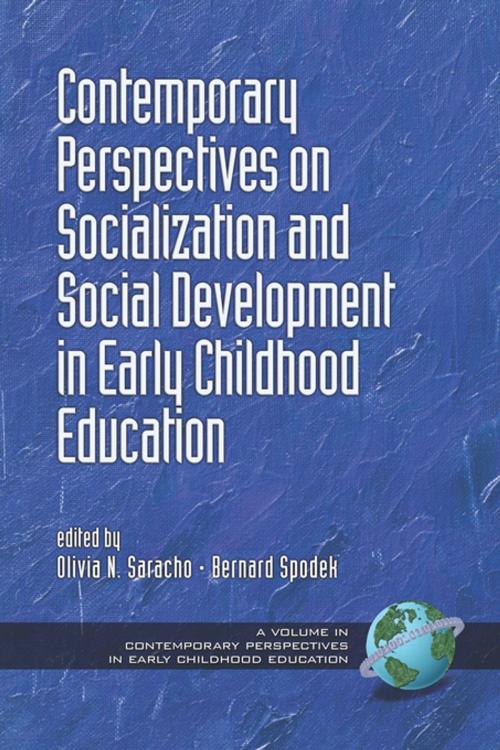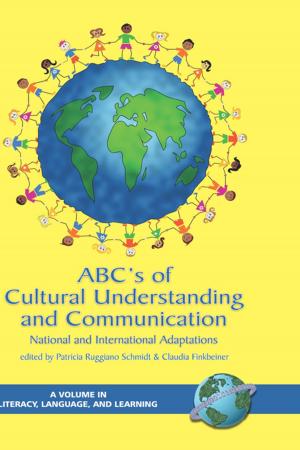Contemporary Perspectives on Socialization and Social Development in Early Childhood Education
Nonfiction, Reference & Language, Education & Teaching, Preschool & Kindergarten, Social & Cultural Studies, Social Science| Author: | ISBN: | 9781607525936 | |
| Publisher: | Information Age Publishing | Publication: | May 1, 2007 |
| Imprint: | Information Age Publishing | Language: | English |
| Author: | |
| ISBN: | 9781607525936 |
| Publisher: | Information Age Publishing |
| Publication: | May 1, 2007 |
| Imprint: | Information Age Publishing |
| Language: | English |
The purpose of this volume is to present a selection of chapters that reflect current issues relating to children’s socialization processes that help them become successful members of their society. From birth children are unique in their rates of growth and development, including the development of their social awareness and their ability to interact socially. They interpret social events based on their developing life style and environmental experiences. The children’s socialization is influenced by several important social forces including the family and its organization, their peer group, and the significant others in their lives. In “Theories of Socialization and Social Development,” Olivia Saracho and Bernard Spodek describe the children’s socialization forces and the different developmental theories that have influenced our understanding of the socialization process. These include maturationist theory (developed by Arnold Gesell), constructivist theories (developed by such theorists as Jean Piaget, Lev S. Vygotsky, and Jerome Bruner), psychodynamic theories (developed by such theorists as Sigmund Freud, Erik Erikson, Harry Stack Sullivan, and Alfred Adler), and ecological theory (developed by Urie Bronfenbrenner). Each theory provides interpretations of the meaning of the children’s social development and describes the different characteristics for each age group in the developmental sequences.
The purpose of this volume is to present a selection of chapters that reflect current issues relating to children’s socialization processes that help them become successful members of their society. From birth children are unique in their rates of growth and development, including the development of their social awareness and their ability to interact socially. They interpret social events based on their developing life style and environmental experiences. The children’s socialization is influenced by several important social forces including the family and its organization, their peer group, and the significant others in their lives. In “Theories of Socialization and Social Development,” Olivia Saracho and Bernard Spodek describe the children’s socialization forces and the different developmental theories that have influenced our understanding of the socialization process. These include maturationist theory (developed by Arnold Gesell), constructivist theories (developed by such theorists as Jean Piaget, Lev S. Vygotsky, and Jerome Bruner), psychodynamic theories (developed by such theorists as Sigmund Freud, Erik Erikson, Harry Stack Sullivan, and Alfred Adler), and ecological theory (developed by Urie Bronfenbrenner). Each theory provides interpretations of the meaning of the children’s social development and describes the different characteristics for each age group in the developmental sequences.















